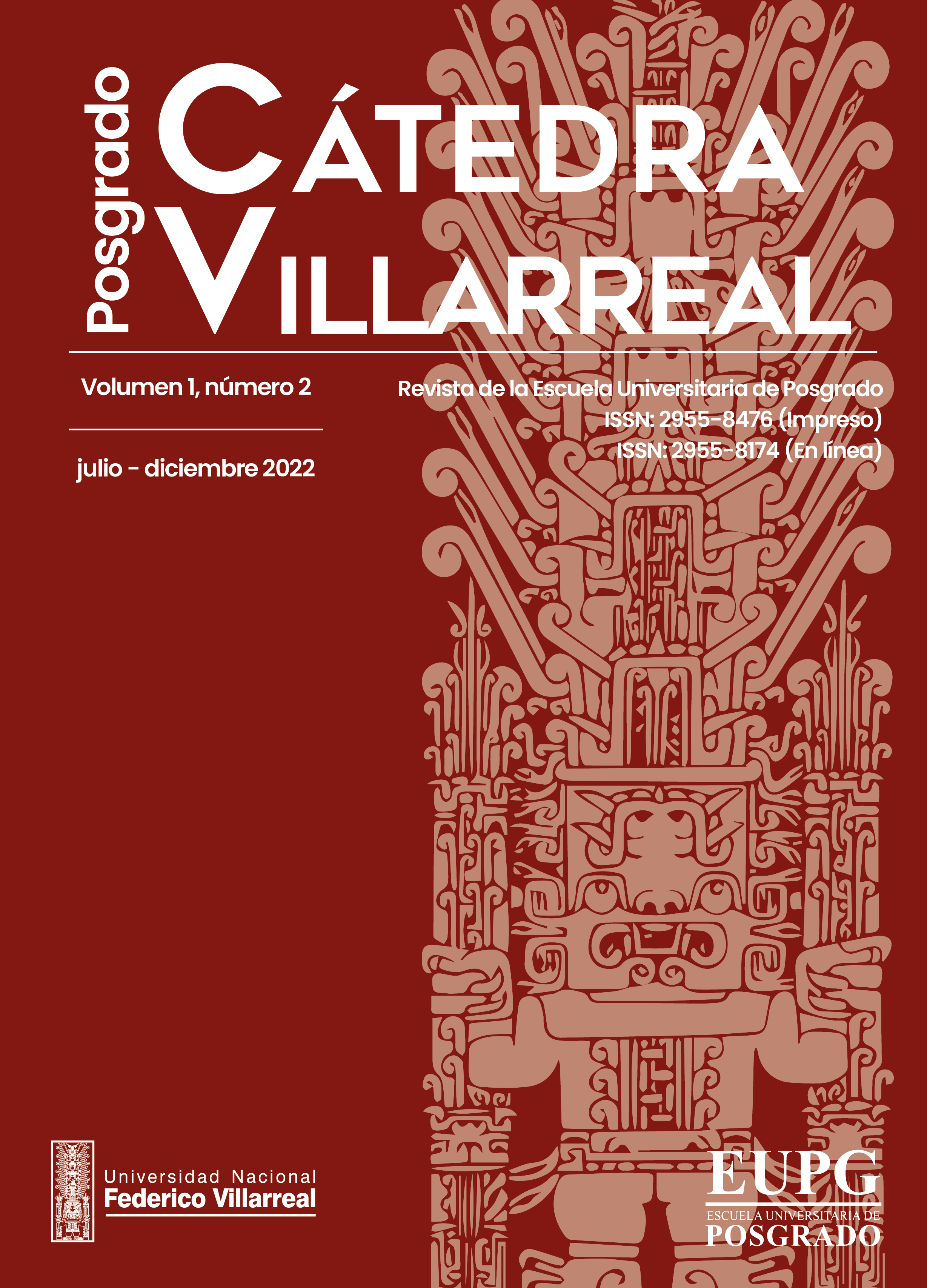Affectation of the Right of Defense of Accused of Organized Crime in the intermediate stage
DOI:
https://doi.org/10.24039/rcvp2022121668Keywords:
Right of defense, intermediate stage, fiscal accusation, acquittal of the accusation, criminal process, organized crimeAbstract
This investigation aimed to determine the causes that affect the right of defense of those accused of organized crime in the intermediate stage of the criminal process. Its type was descriptive, its design was non-experimental, the population was 115 subjects operating the criminal justice system, from which the sample of 89 subjects was drawn, the instrument used was a questionnaire. 93% of the sample agreed that the causes that affect the right to defense of those accused of organized crime in the intermediate stage are the deadline for transferring the accusation and the notification of the accusation. Conclusions: in the process for organized crime, the accused's right to defense is affected because the 10-day period to acquit the accusation is very short, so that the accused's defense can analyze the means of conviction and the steps taken during the preliminary proceedings. and preparatory investigation in order to substantiate any of the eight actions authorized by article 350 of the Criminal Procedure Code, and; because the acquittal of the accusation presented is considered untimely, computing the period from the notification by electronic mailbox and not from the notification by ID card. It is necessary to modify paragraph 1 of article 350 of the Criminal Procedure Code establishing that: the period to acquit the accusation in organized crime crimes will be thirty days and the period to acquit the accusation is computed from the business day following the last one. notification.
Downloads
Published
How to Cite
Issue
Section
License
Copyright (c) 2022 Mirtha Julia Ricra Arzapalo

This work is licensed under a Creative Commons Attribution-NonCommercial-ShareAlike 4.0 International License.
Eres libre de
- Compartir : copiar y redistribuir el material en cualquier medio o formato.
- Adaptar : remezclar, transformar y construir sobre el material.
El licenciante no puede revocar estas libertades siempre que cumpla con los términos de la licencia.
Bajo los siguientes términos:
- Atribución : debe dar el crédito apropiado , proporcionar un enlace a la licencia e indicar si se realizaron cambios . Puede hacerlo de cualquier manera razonable, pero no de ninguna manera que sugiera que el licenciante lo respalda a usted o su uso.
- No comercial : no puede utilizar el material con fines comerciales .
- CompartirIgual : si remezclas, transformas o construyes a partir del material, debes distribuir tus contribuciones bajo la misma licencia que el original.
- Sin restricciones adicionales : no puede aplicar términos legales ni medidas tecnológicas que restrinjan legalmente a otros hacer cualquier cosa que la licencia permita.
Avisos:
- No tiene que cumplir con la licencia para elementos del material que sean de dominio público o donde su uso esté permitido por una excepción o limitación aplicable.
- No se dan garantías. Es posible que la licencia no le otorgue todos los permisos necesarios para el uso previsto. Por ejemplo, otros derechos como publicidad, privacidad o derechos morales pueden limitar la forma en que utiliza el material.












